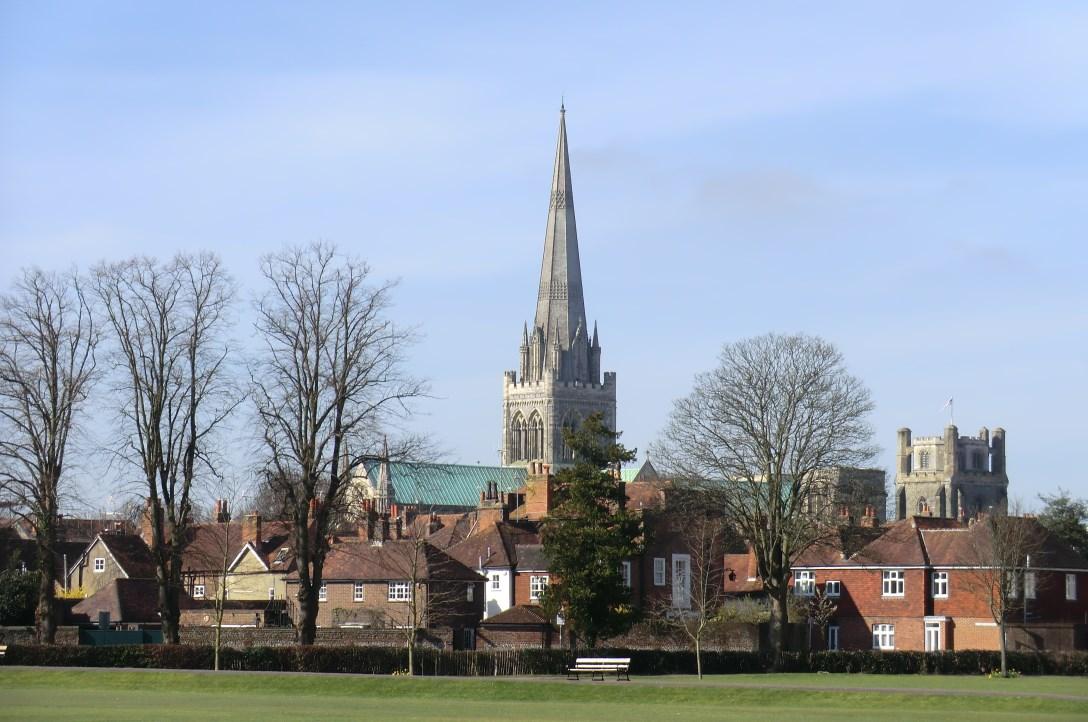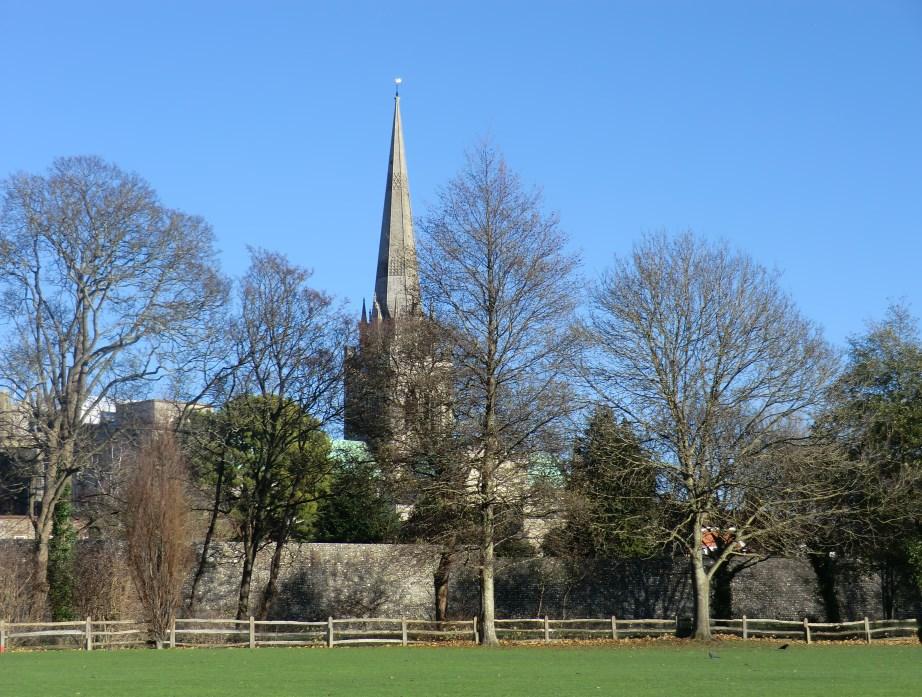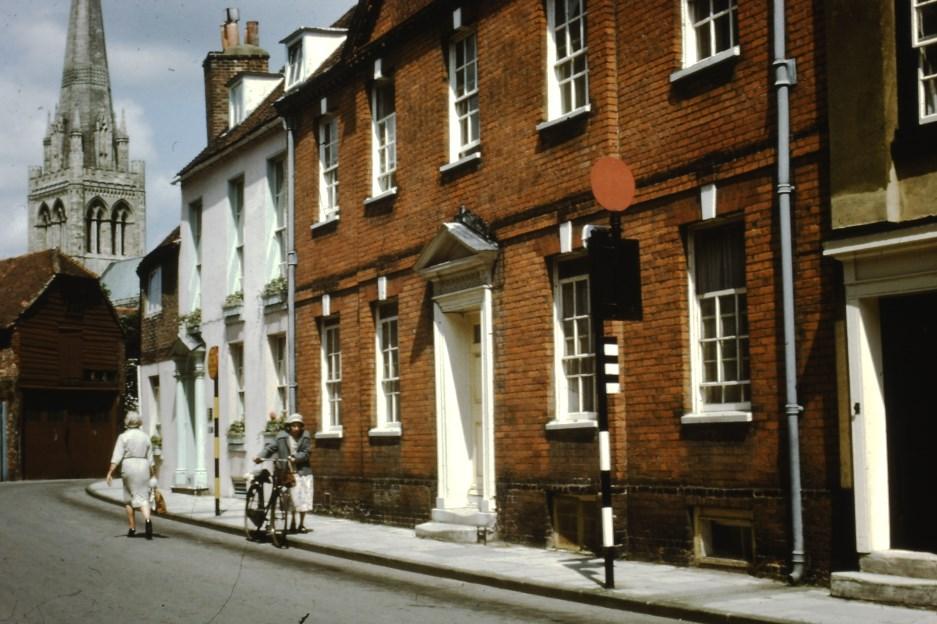
3 minute read
Chichester History
12 History
Where ‘Here’ is for Andrew By local historian Andrew Berriman
Advertisement


Inevitably it was the one-word title of a Philip Larkin poem that got me thinking. His poem is simply entitled ‘Here’. His point is that none of us can help but live somewhere. I have now lived ‘here’, somewhere, in England for seventy years. During those years, I have lived in five places that have been ‘here’ for me for at least three years. How have those places compared in terms of quality of life? And what about you? Where has been ‘here’ for you? Time for an audit, methinks. Bottom of my list has to be an anonymous North London suburb –I won’t be too precise - where I spent my teenage years in the 1960s. To be fair, it provided me with an excellent schooling, a lifelong love of Spurs, and the advantage of not feeling a ‘country hick’ whenever I visit ‘the great wen’. But life there was rather soulless and drab, cycling to school each morning along the dangerous North Circular road, through pea-souper smogs each November. Best bit was sledging, all Christmas holiday, in those memorably snowy winters of 1962 and 1963. You may be surprised that my next least favourite ‘here’ was Cambridge. Yes, the College buildings were elegant, and the College gardens, with their double herbaceous borders, were beautiful. Yes, it was a treat to play tennis and croquet on green lawns, walk along the towpath to Grantchester, and row up the Cam to Ely. But as for real quality of life, I was stressed by working far too hard, just to prove that a grammar school boy was as good as those arrogant products of public schools. And the countryside was so flat; the only exception being the Gog Magog Hills, maximum height of 76 metres. And It was too cold and windy all winter. And too few girls. Not that my third ‘here’ was exactly hilly, or indeed very warm. To the outsider, Doncaster in the 1950s must have appeared a very unlovely place. It was the heart of the South Yorkshire coalfield; my mother used to moan that her Monday washing, ‘out on the line’, got covered in dirty coal smuts. But my early childhood was spent there, and I loved it, playing football or cricket each evening with my schoolmates until dusk, in the large school playground opposite our house. Those hours spent trainspotting on Doncaster Station platform, seeing majestic ‘Streaks’ race through, were super. When we left ‘Donny’ in 1961 the tears flowed. I felt bereft. So I was delighted to return to Yorkshire from 1972 to 1982, to the East Riding, just outside Hull. Hull was Philip Larkin’s ‘Here’. Like him, I was so contented there, playing cricket for South Cave, volunteering at Skidby tower windmill, getting married, having a family, proud that my children were born in Beverley so that my son could play cricket for YCCC. Not that he did. The East Riding countryside is remote, unknown, unchanging. Larkin felt the same, and he never left. Nor did I have any wish to do so, but couldn’t resist that insistent tug of unfulfilled ambition. So we moved south to Chichester. Luckily it turned out well, and I have been ‘here’ for almost four decades. Even after retirement I had no desire to move elsewhere, unlike my parents who fled North London like a shot, down to the Sussex coast at Eastbourne. I don’t need to extol the virtues of Chichester to you, despite its ridiculous excess of coffee shops. I felt, and still feel, at ease here. Chichester is like Beverley, with its large church and its Market Cross. The South Downs are just like the Yorkshire Wolds, with their gentle chalk uplands and dry valleys. Chichester is still compact, with a definite, distinct ‘spirit of place’. Eric Gill, on moving here from Brighton in 1897, wrote that ‘Here was something as human as home, and as lovely as heaven’. He was right, and that’s why Chichester is undoubtedly my favourite ‘here’. ‘West Pallant', Eric Gill sketch, 1900 ‘West Pallant', 1970 Chichester Cathedral and city walls Chichester Cathedral from Priory Park
through the door











